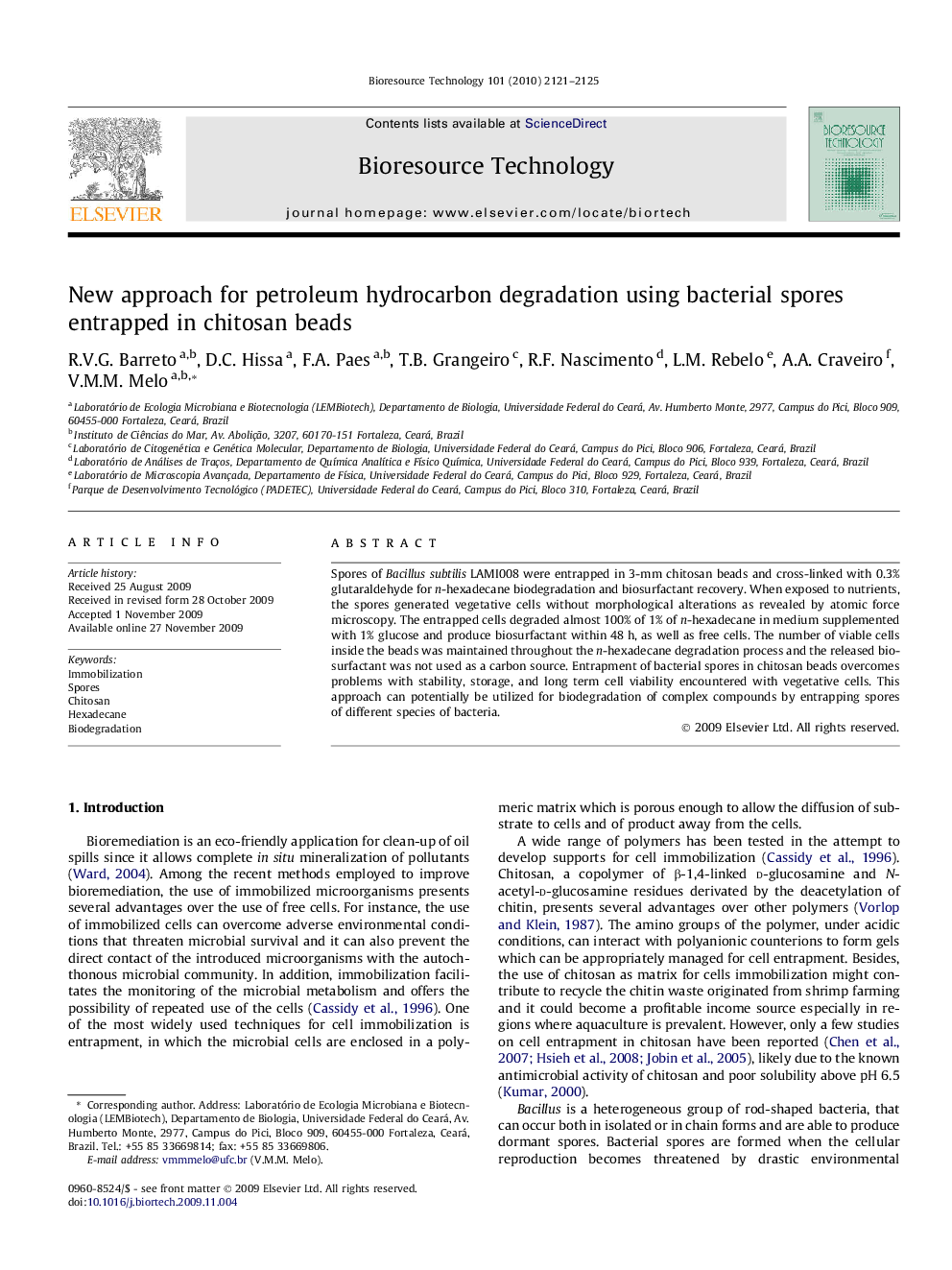| Article ID | Journal | Published Year | Pages | File Type |
|---|---|---|---|---|
| 683834 | Bioresource Technology | 2010 | 5 Pages |
Spores of Bacillus subtilis LAMI008 were entrapped in 3-mm chitosan beads and cross-linked with 0.3% glutaraldehyde for n-hexadecane biodegradation and biosurfactant recovery. When exposed to nutrients, the spores generated vegetative cells without morphological alterations as revealed by atomic force microscopy. The entrapped cells degraded almost 100% of 1% of n-hexadecane in medium supplemented with 1% glucose and produce biosurfactant within 48 h, as well as free cells. The number of viable cells inside the beads was maintained throughout the n-hexadecane degradation process and the released biosurfactant was not used as a carbon source. Entrapment of bacterial spores in chitosan beads overcomes problems with stability, storage, and long term cell viability encountered with vegetative cells. This approach can potentially be utilized for biodegradation of complex compounds by entrapping spores of different species of bacteria.
